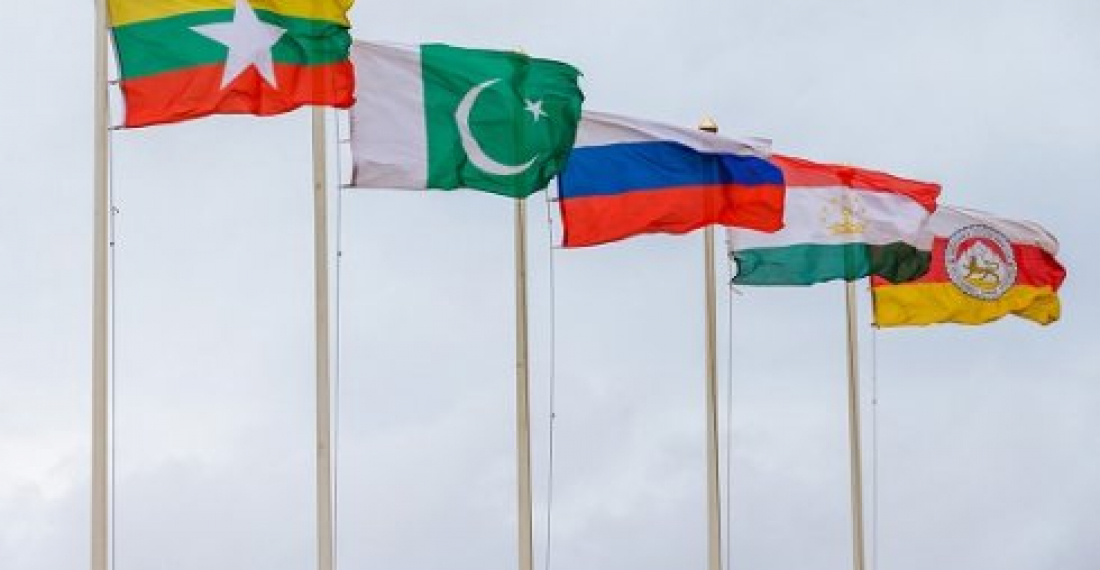With much fanfare Russia is this week holding massive military exercises in the Southern Region of the country in an area stretching from the Black Sea to the Caspian Sea, including the Caucasus region. More than 80,000 soldiers and other military personnel are participating in the drills. There are also one thousand foreign troops representing a number of countries.
A press release issued by the Russian Ministry of Defence on Monday (21 September) said:
"Military formations from Armenia, Belarus, China, Myanmar and Pakistan are invited to the exercise to practice joint actions as part of groups of troops (forces). In total, up to 1,000 foreign military personnel are invited. Representatives of Azerbaijan, Indonesia, Iran, Kazakhstan, Tajikistan and Sri-Lanka plan to participate as observers."
The report of the opening ceremony of the exercises posted on the website of the Russian Ministry of Defence on the same day however, showed that there were two additional flags flying, apart from those countries mentioned in the press release - those of Abkhazia and South Ossetia.

Indeed, in subsequent military communiques that have been issued during the exercises, the participation of troops from Abkhazia and South Ossetia are also mentioned, for example in this report below (screenshot from website of Russian Defence Ministry)

Since it is excluded that the absence of any mention of Abkhazia and South Ossetia in the official press release was simply a mistake, one must conclude that the Russian Ministry of Defence has resorted to some constructive ambiguity in the way it is presenting the participation of these two Russian protectorates, that Russia formally recognises as foreign countries, but that most of the rest of the world - including by the way all the other countries participating or observing Kavkaz 2020, consider part of Georgia. The participation of Abkhazia and South Ossetia in Kavkaz 2020 gives these military drills considerable political significance. India, which was supposed to participate in the drills pulled out last month. Officially they cited the pandemic as a reason, but informally Indian officials briefed the media that the participation of Abkhazia and South Ossetia made their participation impossible. That did not seem to have disturbed other countries who have their own separatists problems. For these countries participating in Kavkaz 2020 was an auto goal - notwithstanding the constructive ambiguity of the Russian Defence Ministry.
source: commonspace.eu
photo: 1 The Ossetian flag (last right) flies at Kavkaz 2020 (screenshot from website of the Russian Ministry of Defence)
photo 2: The Abkhaz Flag (second from left) flies at Kavkaz 2020 (screenshot from website of the Russian Defence Ministry)






